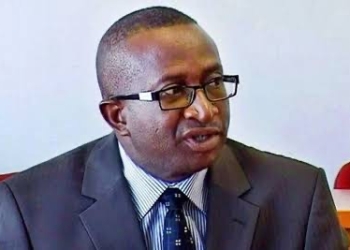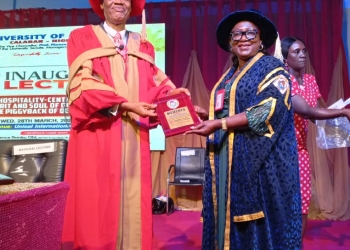By Anietie Akpan
Smarting from its recent 50 year anniversary celebration, the University of Calabar (Unical) neck deep in fresh crisis over the selection process of a new Vice Chancellor.
This is so as some stakeholders have raised alarm over attempts by some professors and the University’s Governing Council to introduce a mandatory 10-year post-professorial experience criteria for candidates vying to become Vice Chancellor.
This action according to findings is seen by many “as unprecedented, unfair, and legally questionable”.
The controversy erupted after a media report with the bold headline “FG: 10 years’ experience as professor key criteria for VC selection” made rounds, implying a binding federal directive.
However, sources said a closer look at the body of the same article reveals that the so-called “requirement” is merely a guideline—not a law—and one not enforceable on the Governing Councils of autonomous Federal Universities.
Multiple sources within the Federal Ministry of Education, Abuja have since confirmed that no directive was issued mandating 10 years’ professorial experience as a minimum qualification.
“The 10-year recommendation was a guideline for consideration,” one senior official said under anonymity.
“It is not a directive, Governing Councils are free to set 5, 7, 8, or 9 years based on their institutional context and tradition. The Ministry only guides—it does not impose.”
This clarification has only deepened concerns that the attempt to enforce the 10-year rule in Unical may be a political ploy to exclude certain strong candidates.
In particular, critics point to the fact that the last three Vice-Chancellors of the institution were appointed with 5, 7, and 9 years of post-professorial experience, respectively—without any controversy or disapproval from the Ministry of Education or the Presidency.
Education law experts emphasize that the University Miscellaneous Provisions Act (as amended) entrusts the governing council with exclusive powers to set criteria and recommend suitable candidates for the VC position.
While the Ministry may issue advisory policies, it does not have the power to dictate terms or overrule the council’s decisions within the law.
The new policy recently announced by the Minister of Education, Dr. Tunji Alausa, which bars acting Vice-Chancellors from contesting for the substantive post unless they step down, has also been widely misrepresented.
Though necessary to ensure fairness, this policy has been wrongly conflated with unrelated eligibility conditions like the 10-year rule.
“The real issue is not policy—it is manipulation,” said a prominent Unical stakeholder. “This process should be guided by equity, merit, and transparency, not backdoor politics or propaganda. This is not politics with zoning and tribal agendas. It is all about competence”
The University community, alumni, and concerned observers across the country are calling on the governing council to adhere to both the law and the spirit of fairness, resisting attempts to bend the rules midstream.
In a time when Nigerian Universities need strong, visionary leadership more than ever, insiders warn that excluding qualified candidates through artificial barriers could damage both the credibility of the process and the future of the institution.
Again this is viewed in some quarters as an attempt by some professors trying to hijack the system and hold on to the running of the University to the detriment of others, using high connections in Abuja.
Unical, a proud second-generation university celebrating 50 years of academic service, now finds itself at crossroads.






